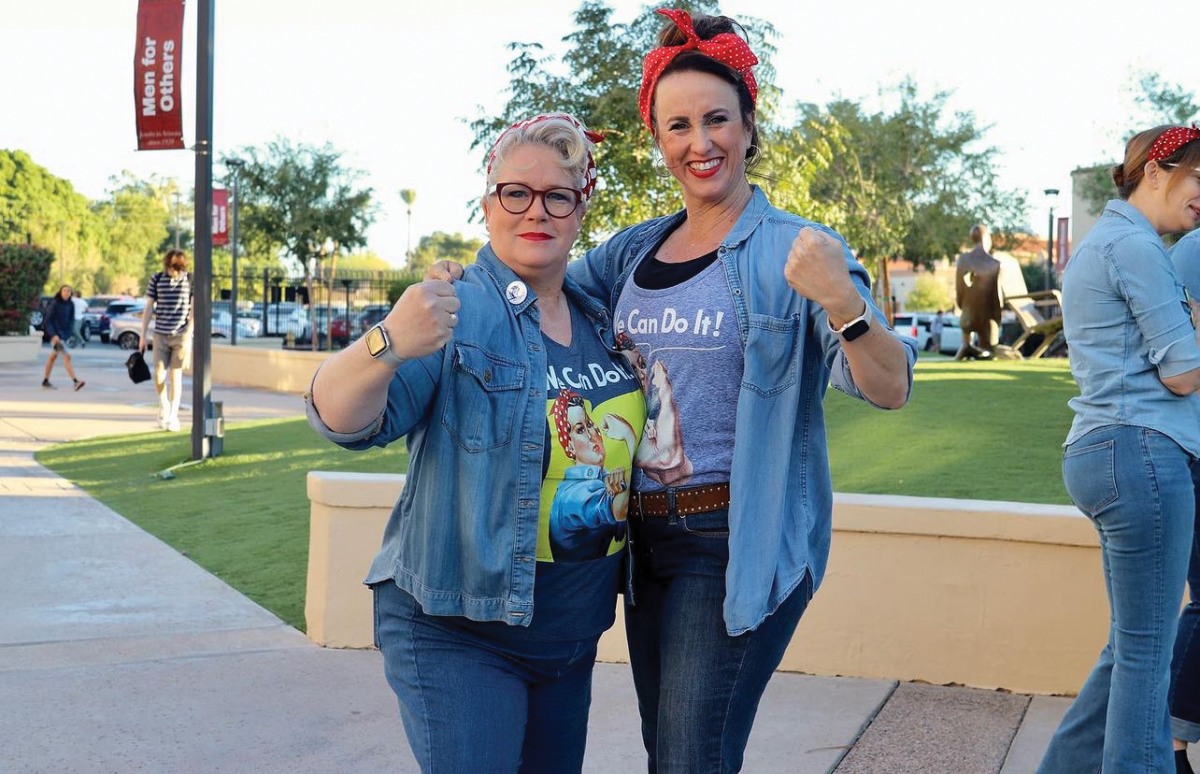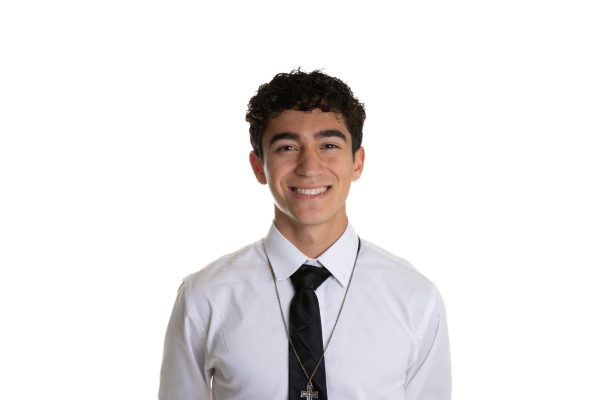Photo Courtesy of Mrs. Kathy Mabry
By Santiago Sanchez ’25
THE ROUNDUP
Female teachers at Brophy are grappling with loving their job and dealing with misogynistic comments. At an all-boys Jesuit school, female teachers have said that they overhear sexist comments from students and feel like they are not as respected as the male teachers.
Then why would a female teacher want to work at an all-boys school? Turns out, it doesn’t have much to do with gender at all.
Before going to Brophy, Ms. Leah McNamara had taught at four other co-ed schools. She said that her co-ed classrooms were a lot quieter and more organized than Brophy classrooms. Three out of those four schools were Catholic, and Ms. McNamara said that her faith played a big factor in her decision.
“It was the Jesuit nature more than the all-boys nature,” said Ms. McNamara, regarding her decision to work at Brophy.
However, Ms. McNamara said she would teach at an all-boys school over an all-girls school because she enjoys the lightheartedness of teenage boys more than the stressful nature of teenage girls. That being said, Ms. McNamara has also experienced misogyny during her time at Brophy.
“I overhear a lot of comments on the looks of females or girlfriends, sisters, friends,” Ms. McNamara said. “The things that I’ll overhear is ‘she is something’ or ‘she looks like something’ and not anything about personalities or even her name… it’s just a lot of looks, and not really words we should be using to talk about females’ looks.”
Dr. Dani Kachorsky, who chose to go to Brophy because of its high academic and extracurricular standards, not because of gender, said that having female students on campus would combat this misogyny that is found on campus.
“If there were more girls on campus, I think they would not react well to that and that would escalate to a lot of pushback against the males who say that and there would be consequences,” said Dr. Kachorsky.
Having more female students on campus would also give the female teachers a level of respect that they do not find among the male students. Dr. Kachorsky noted that students do what male teachers tell them to do with very little pushback, while they feel they have more wiggle room with female teachers.
“There’s certainly a lot more negotiation,” Dr. Kachorsky said, “As if that’s an option.”
“Male students want the coach vibe a lot,” Ms. McNamara said, “When they’re corrected by male teachers, that’s normal, that’s what the coach does… [being corrected] by a female teacher is earth shattering.”
Dr. Kachorsky also said that being all-guys also deprives Brophy students of understanding how to interact with the opposite gender in healthy ways. Her biggest worry was that students may not know what sexual harassment actually looks like. “We can tell you, but if you don’t have the active experiences of learning that kind of engagement, you’re going to make mistakes,” Dr. Kachorsky said.
One of the reasons someone may think that an all-boys school is beneficial is because students can focus on their studies, not girls. However, neither of the teachers really noticed that.
“I think that’s the general theory that’s supposed to happen, but I don’t see it happening,” Ms. McNamara said. She stated that co-ed classes also balance very well, with the lightheartedness of teenage boys bringing down the stress in teenage girls and the organization of teenage girls helping teenage boys stay on task.
Ms. McNamara states that in an ideal world, she would want Brophy to be co-ed. At the current moment, however, she believes that Brophy cannot be co-ed, because of the situation with the block schedule.
Dr. Kachorsky also believes that Brophy should be co-ed. She thinks that leaving an entire group of people who would benefit from everything offered at Brophy is “antithetical” to the mission of Brophy, especially since we are a school focused on equity and inclusion.
Brophy’s Jesuit identity and high level of education attracts teachers of both genders. However, Brophy’s unique single-gender student body has its positives and negatives.















